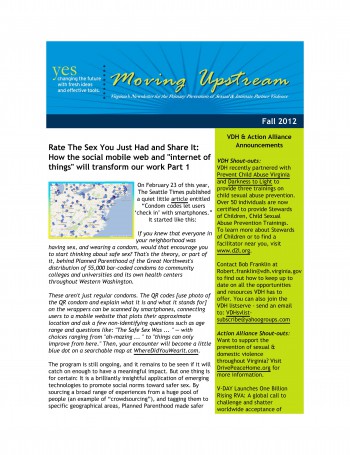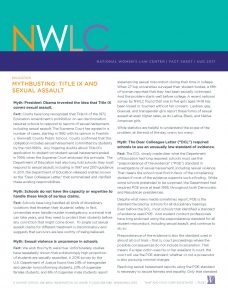Resources Library: Advocates
Start a Search:
Mistreatment of Marginalized Elders
The National Center on Elder Abuse (NCEA) has developed Research Briefs to help practitioners, students, and researchers access recent and past research studies and highlights of findings on how elder abuse impacts various marginalized communities. View each research brief below for more insight into these areas, and ways to combat this complex experience of violence.
Model Policies for Providing Services to LGBTQ Survivors of Violence
This guide is intended to assist sexual and domestic violence direct service organizations in
Virginia that wish to better serve lesbian, gay, bisexual, transgender, and queer (LGBTQ)
survivors of violence.
There are two major sections to this guide:
1. Model Policies
2. Best Practices
The guide is available in both English and Spanish
Model Protocol on Services for Limited English Proficient Immigrant and Refugee Victims of Domestic Violence
The Washington State Coalition against Domestic Violence (2002) created a model protocol for the state of Washington with the goal of supporting domestic violence agencies to increase and extend their services to immigrant women whose first language is not English. Included in the protocol are recommendations for agency policies and procedures, specifically how to conduct intake, provide crisis intervention, facilitate accommodating shelter experiences, legal advocacy, and more.
Moving Upstream: Newsletter for the Primary Prevention of Sexual and Intimate Partner Violence

An indispensible resource for building capacity for the primary prevention of sexual and intimate partner violence. Each issue features a theoretical article by a sexual violence prevention specialist, a spotlight on promising practices in Virginia, information on events in Virginia relevant to primary sexual violence prevention, and a “Funder’s Forum” section with guest information from the Virginia Department of Health’s Center for Injury and Violence Prevention.
“Moving Upstream” is made possible by Virginia Department of Health and Virginia Sexual & Domestic Violence Action Alliance. Published 3-4 times annually.
National Women’s Law Center - Mythbusting Title IX and Sexual Assault

Nearly one in five undergraduate women experience sexual assault or attempted sexual assault while in college, as do too many men and gender non-conforming students. Title IX of the 1972 Education Amendments requires that schools prevent and respond to reports of sexual harassment, including rape, to ensure survivors can continue to learn in the wake of violence. Despite significant evidence to the contrary, some critics argue that survivors of sexual misconduct on college campuses have too many rights. Myths like these are inconsistent with the law and ignore the real experiences of students subjected to sexual harassment. Below are other myths and facts about sexual assault and Title IX.

